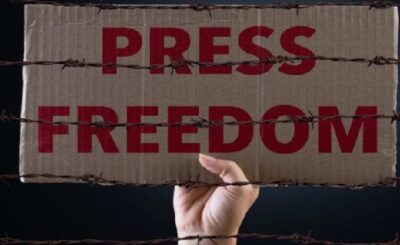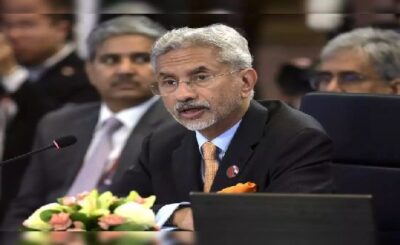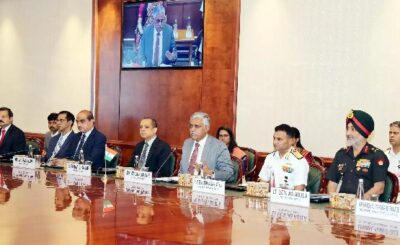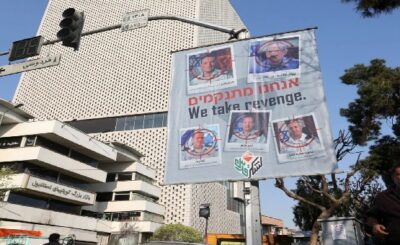-: R Muthu Kumar :-
The World Trade Organisation (WTO) oversees global trade rules between countries to support free trade and open markets. While many economists advocate free trade, politicians and voters argue that globalisation is unfair and undermines economic autonomy. There are many drawbacks of WTO. Free trade advocates argue that the WTO is unnecessary and even disruptive to markets. The WTO has a dark side. For years, critics have argued that the WTO is a vehicle for countries to engage in trade, war, and aggression against developing countries, an unnecessary and expensive layer on top of the natural market forces of international trade. Whether the organisation makes economic sense is questionable, but politically WTO is very important.
Moreover, its role as the leading forum for international trade-policy cooperation is increasingly eroded by the proliferation of regional trade agreements to which governments are turning instead.
India has signed 13 Regional Trade Agreements (RTAs)/Free Trade Agreements (FTAs) with various countries/regions namely, Japan, South Korea, countries of ASEAN region and countries of South Asian Association for Regional Cooperation (SAARC)Mauritius, United Arab Emirates, Australia. India’s merchandise exports to all these countries/regions have registered a growth in last ten years.
The Russian action to counter Ukraine’s decision to join NATO has been met with unprecedented trade and other economic sanctions. Some members of the World Trade Organization (WTO) have revoked Russia’s most-favoured-nation (MFN) status, allowing them to raise barriers to trade with Russia.
If any WTO member extends material support to Russia, they, too, may become subject to trade sanctions, leading to further fragmentation of the world trading system.
Russia has become subject to more than 13,000 restrictions. That’s more than Iran, Cuba, and North Korea combined.
Still, Russian GDP fell just 2.1 percent in 2022, and Russia’s GDP was $4.148 trillion at the end of 2023 in puchasing power partity terms. Latest forecast for Russian GDP growth in 2024 to 2.6%, from the 1.1%
So Russia proves that sanctions are ineffective. Moreover high inflation in the United States and the corresponding growth in interest rates there has hit the value of U.S. banks’ bond portfolios, and the March collapse of three U.S. banks sent markets into a spin, prompting talk of “echoes of the global crisis” among analysts. Meanwhile, the Russian economy—safely isolated from the global financial markets by sanctions—escaped unscathed.
The head of the World Trade Organization insisted Friday that it remains relevant and its leaders focus on reform “no matter who comes into power” as Donald Trump — who as U.S. president bypassed WTO rules by slapping tariffs on America’s friends and foes alike — makes another run at the White House.
“People don’t realize that they’re taking for granted that 75% of world trade is taking place on WTO terms,” she said.
WTO Director-General Ngozi Okonjo-Iweala said it “really bugs me” when the Geneva trade body is depicted in the press as seemingly irrelevant — a claim based around the fact that its system of resolving trade disputes is gummed up.
he United States under the past three administrations has blocked appointments to its appeals court, and it’s no longer operating. Washington says the judges have overstepped their authority too often in ruling on cases.
Trump, who once threatened to pull the United States out of the WTO, ignored its rules by using tariffs — or taxes on imported goods — as a punitive tool against friendly countries in the European Union, Canada, Mexico and others, but especially China.
Elections in dozens of countries this year make for a tricky political backdrop — including the United States, which she called a “very consequential country”.
The WTO has been long accused of being unfair to developing country governments. They act where powerful governments and big corporations make policy decisions. Under the WTO, it is inevitable that developing countries will suffer more from the disruption of trade agreements with other countries simply because they have less influence on the global economy. WTO, have often been heavily criticised for supporting powerful countries and allowing them to exploit less developed countries.
Several agreements on agricultural products and medicines have reduced access to food and medical care, resulting in many deaths.
The WTO has been criticised as undemocratic. The structure is claimed to allow wealthy countries to get what they want. They probably benefit the most.
The WTO was established in 1995. It consists of 164 members. It deals with sales of trade between nations at the global level and operates to liberalise trade and free flow of goods and services in the international market Like the GATT, the headquarters of the WTO is also situated in Geneva.








